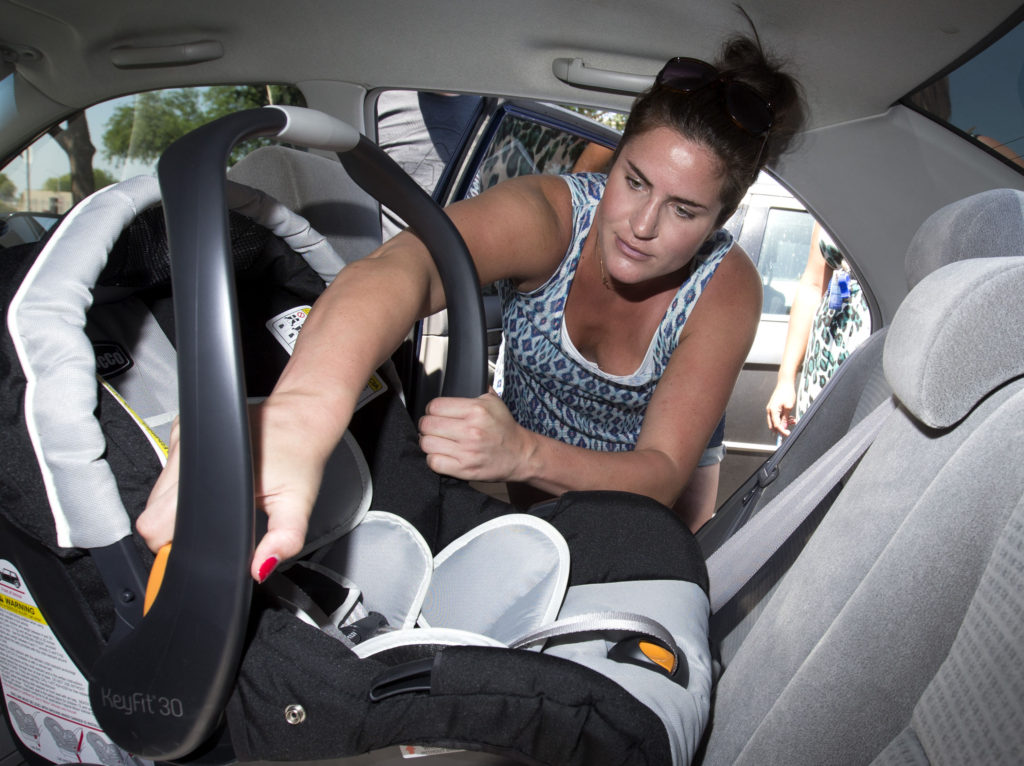
[quote_box_right]
Seat Them Safely (Siéntelos Seguros)


[/quote_box_right]The statistics are alarming and the tragedies preventable. An unprecedented effort at protecting young lives is underway.
The Diocese of Phoenix has joined with The Arizona Republic and other media outlets and local organizations to alert the community about the importance of using car seats for infants and children in a campaign dubbed “Seat Them Safely,” or “Siéntelos Seguros” in Spanish.
Because life is precious and must protected from a baby’s first moments in his mother’s womb, the diocese is taking that message into the community with an eye toward safeguarding the smallest and most vulnerable on the Valley’s roads and highways.
EN ESPAÑOL: Diócesis de Phoenix lanza campaña conjunta ‘Siéntelos Seguros’
Placing a baby in a car seat the correct way, beginning with that first trip home from the hospital, is one of the most important things parents can take to protect the life God has placed in their hands.
The point of the “Seat Them Safely” campaign is to raise awareness in the Spanish-speaking and Hispanic communities and end the dangerous practice of not using car seats.
“The protection of the most defenseless and vulnerable has always been important to the Catholic Church. The defense of life begins at conception in the mother’s womb, but it doesn’t end at birth,” said Cristofer Pereyra, director of the Office of Hispanic Missions for the Diocese of Phoenix.


Statistics vary greatly but all show that the rate of parents who use car seats incorrectly ranges between 60 to 90 percent in the general population.
Moreover, according to a 2013 SafeKids study, Hispanic families have beliefs that undermine their use of car seats. Some believe the safest place for their babies is in their mother’s arms. Others figure that car seats are unnecessary for short distances or when babies are sleeping. Another reason given is that the seats are seen as uncomfortable. At times, for good behavior, parents reward children by telling them they don’t have to use the car seat.
“It’s alarming that statistically Hispanics demonstrate a great need of learning about the importance of the use of car seats and seatbelts. That’s why the Diocese of Phoenix has enthusiastically joined with this community effort to raise public awareness,” Pereyra said.
In the Valley, hospitals require that parents — from the moment children first leave a health center — have their vehicle equipped with a car seat that meets the standards required by Arizona law. According to the Arizona Department of Motor Vehicles’ website, dmv.org, every child under the age of 8 or who is less than 4 feet, 9 inches tall, must be secured in an appropriate manner in a car seat.
Part of the “Seat Them Safely” campaign has been financed by the federal government through an initiative of Bob Ortega, a reporter with The Arizona Republic. The Diocese of Phoenix, along with The Arizona Republic, leads the campaign and hopes to make an impact that raises awareness in the Hispanic community.
— By María T. Bonilla






